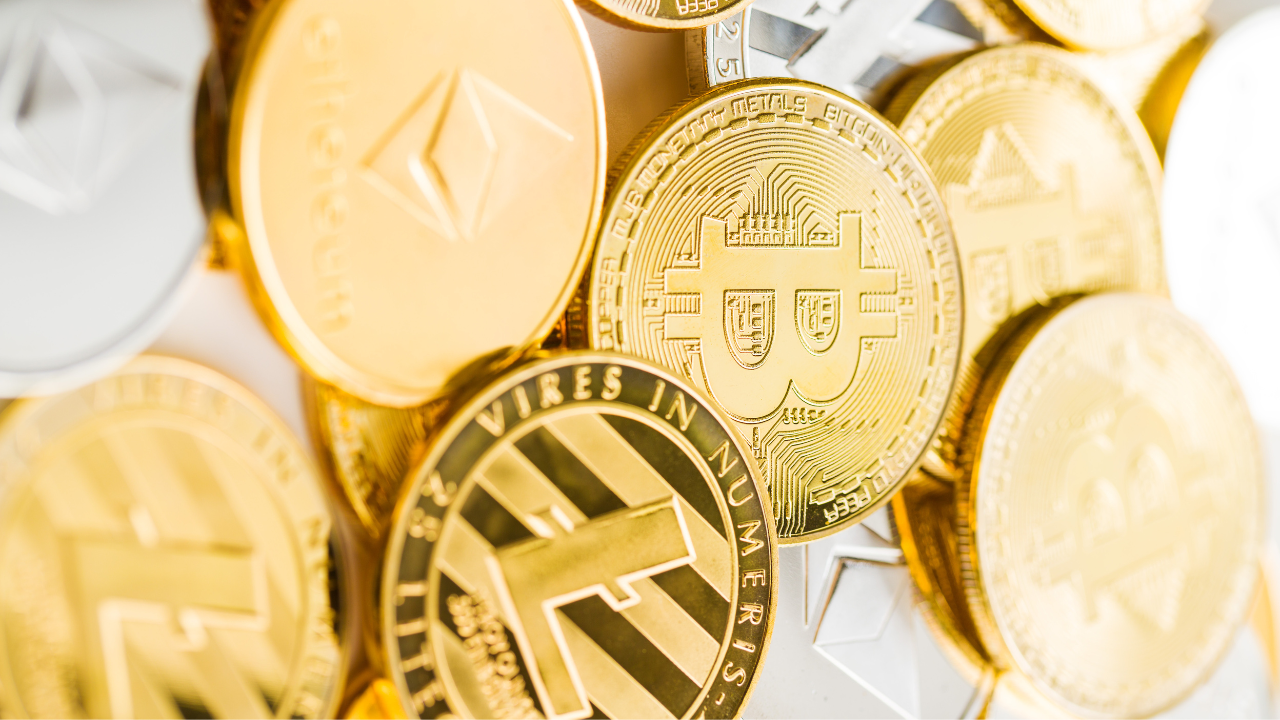Cryptocurrency 101
May 19, 2021
Cryptocurrencies: should you be investing?
Google cryptocurrency news and you’ll find headlines like
- ‘How two brothers went from nearly jobless to multi-millionaires with a bizarre crypto bet’
- ‘Dogecoin rallies on Elon Musk tweet, anticipated Coinbase listing’
- ‘Multiple US agencies probing world’s largest cryptocurrency exchange, Binance’
- ‘Bitcoin bulls have long claimed the cryptocurrency is an inflation hedge. But recent price swings have challenged that idea.’
Wow, what a spread. Cryptocurrency is responsible for making multi-millionaires, but also potential criminals? Dogecoin is considered a volatile joke, but it’s price is increasing? Bitcoin was once a hedge against inflation, but after the CPI (consumer price index) increased, it’s value plummeted?
I don’t know if I can answer all of these questions in one blog, but what I will try to do is answer the question: Should you be investing in cryptocurrencies?
Cryptocurrency 101:
In this blog I’m going to explore…
- What is a cryptocurrency?
- What type of cryptocurrencies are there?
- What is DeFi and what are NFT’s?
- How do you buy and exchange cryptocurrencies?
- What are the pros and cons of investing in cryptocurrencies?
What is a cryptocurrency?
Let’s start at the beginning. Have you ever gone to a County Fair or an arcade? If you have, you’ll remember that you never paid for games or rides with actual money. You paid with tokens or tickets. For example: $20 got you 40 tickets and each fair ride was 2 tickets. Therefore every ticket was worth .50.
So, instead of carrying around boxes of quarters or stacks of dollar bills, the fair made the transactions easier by creating a single separate, easy to exchange ticket!
Cryptocurrencies work in a similar way, and many of them were created to do the same thing — make transaction more simple. Cryptocurrencies are forms of payment that can be bought, sold or exchanged for other currencies or items of value. This exchange is done online only.
The Blockchain
Cryptocurrencies work using a blockchain, which is a decentralized technology spread across many computers that manages and records transactions. The data is stored in separate ‘blocks’ and then linked together. So machines can now follow human command (computers), exchange information (the Internet) and store and transfer value (the Blockchain). Blockchain technology has a heightened level of security that helps give cryptocurrency value.
Digital Scarcity
The increased security that blockchain technology has also allows for ‘digital scarcity.’ To understand this concept, think of items that might have physical scarcity like precious metals, limited edition artwork or baseball cards. There is a limited amount of these items that creates more value for their owners.
Now think of some digital products like a JPG image, a PDF document or a MP3 music file. Before, if I sent you a JPG image, it would just be a copy. I would have the image and you would have the image and so would anyone else that you sent it to. The image would be worth very little. Now, with Blockchain technology, we can make these digital items secure, so that they can be traded and exchanged for more value.
What types of Cryptocurrencies are there?
Currently, there are over 7,400 cryptocurrencies out there worth more than $2.2 trillion and surprisingly have many different purposes, beyond being used as an investment vehicle.
Bitcoin
This is the first and biggest cryptocurrency by far. As I write this, the value is over $900 Billion. Bitcoin derives its value from being digitally scarce. There will only ever be 21 million Bitcoin available. It’s deflationary by nature, but what does this mean?
Let’s take a trip back to Economy 101. Remember that supply and demand theory? As the supply of Bitcoin becomes more finite, the demand (and price) will increase and create more buying power for owners of Bitcoin. Many people feel this could act as a ‘hedge’ or protection from the US dollar or other fiat money (currencies established by governments) because fiat currencies are more affected by inflation and government policy. This is why many people call Bitcoin ‘digital gold.’
Altcoins
Altcoins are cryptocurrency that are ‘alternatives’ to Bitcoin. Many of these coins work like Bitcoin and use a similar Blockchain technology that provides secure peer-to-peer transactions. Some differences from Bitcoin might be the ‘rules’ they use for mining or how many ‘coins’ will be available. These differences will affect the value of the coins and the speed of the transactions.
For example, Litecoin uses a different set of rules for mining than Bitcoin. Whereas Bitcoins require costly hardware to mine, litecoins can be mined with regular computer hardware. Litecoin will produce coins every 2.5 minutes which helps make Litecoin able to process payments faster. Litecoin will also produce 84 million Litecoins, compared to Bitcoin’s 21 million Bitcoins.
Altcoins can be created by crypto-enthusiasts in attempts to ‘improve’ the Bitcoin rules and take away what they perceive to be flaws. They can also be created by users who want to follow an index. Some have been created as a way to transact in a new business or yes- even as a joke. Google ‘Dogecoin memes’ for more info there! Overall, Altcoins help increase competition to lower transaction fees.
Stablecoins
Stablecoins are like the index funds of cryptocurrencies. They are Altcoins that are tied to a particular index or currency. For example, Tether is a Stablecoin that is tied into the value of the US dollar. When the dollar is up, Tether is up.
Tokens
Remember our County Fair example? Tokens are the tickets at the fair. Tokens are what’s used for payment for many emerging DeFi (decentralized finance) companies. For example, Binance Coin is a token that was created just to pay fees on the Binance cryptocurrency exchange. XRP is a Token that was created to be used by the Ripple payment network (now suspended).
What is DeFi and what are NFT’s?
What has helped me better understand the world of cryptocurrency, is understanding the application of cryptocurrency. In essence, the WIFM: What’s in it for me (or the world)? Be on the lookout for another blog to dig into these topics soon. For now, here are the basics.
DeFi
DeFi stands for Decentralized Finance and it refers to companies that perform transactions like exchanging currency, issuing insurance policies, and lending money- actions that most financial institutions do now- all using that Blockchain technology we talked about earlier. For example, if I needed a loan I would most likely go to a bank who then lends me money that they are holding for other bank customers. In a DeFi loan, I would go to the DeFi company, interact with a code that contains a ‘smart contract’ that would link me up directly with another user. After the terms of the loan were set, the code would execute these conditions automatically. Ideally making the process faster and less expensive overall- which could be a big win for consumers!
NFT’s
NFT’s or ‘non-fungible tokens’ are individual pieces of data that are stored and exchanged using Blockchain technology. The definition of fungible is ‘mutually interchangeable.’ Unlike Bitcoin, where there is millions of fungible coins, there will only ever be 1 of each individual NFT. Most NFT’s are being bought using Ether (from the Ethereum DeFi platform). You can get a more detailed (and fun) definition with this recent SNL skit!
NFT’s capitalize on the idea that as a society we love not only owning and collecting rare items, but also showing them off! Remember that old Beenie Baby collection you used to have? It wouldn't have been as cool if your friends didn't come over to check them out or bring them to school. People can ‘collect’ series of NFT’s and then show them off in their ‘wallets’ to friends, family and the entire internet!
How do you buy and exchange cryptocurrencies?
To buy cryptocurrencies, you’ll need a “wallet,” an online app that can hold your currency. You’ll simply transfer cash from your bank to the “wallet” and can then buy and exchange cryptocurrencies there. If you’re setting up a wallet, I would ensure that you have the ability to ‘cash out and transfer’ your crypto.
There are many many different ‘e-wallets’ on the market. Some are built just for Bitcoin, some can trade multiple types of cryptocurrency. From the research that I’ve done, Coinbase is one of the best platforms for beginners because it’s easy to use and focused on educating its users on cryptocurrency. Plus they will literally give you FREE Cryptocurrency for completing lessons- hard to beat that! I will say, for this convenience and service, the fees are a little higher than some other platforms. But, if you’re just getting started with lower amounts, this is going to be less of an issue.
Binance is another popular platform, but from the article at the top, you can see it’s currently being investigated for criminal activity. CEX is another popular platform. Both Robinhood and Cash app have started letting users buy Bitcoin along with a limited number of Altcoins. In my research both these platforms don’t have the best reviews, but they are available options. You can take a look at more options on this list.
What are the pros and cons of investing in cryptocurrencies?
Pros
Solves a problem.
Crypto answers the need for more accessibility to financial assets. In the US and developed countries, it’s relatively easy to access and invest in markets to build wealth. This is not the same for citizens of all countries around the globe.
Wide availability of information.
The crypto market is pretty transparent with information. Unlike stocks, there is ready, real-time information about who is buying and selling crypto assets which lessens the need for ‘insider information’ creating more accurate pricing.
You don’t have to invest in cryptocurrencies directly.
Don’t want to invest in Bitcoin directly? Many public companies like Tesla and Square have large holding of Bitcoin. You can see a full list here.
A hedge against inflation.
I mentioned this earlier, but coins with a limited supply like Bitcoin run counter to inflation and have the potential to increase your buying power in the future.
Can open up other investment classes with Tokens.
We discussed crypto’s many uses in DeFi companies, but crypto could also be used to free up previously hard- to-invest- in physical assets. For example, let’s say I wanted to invest in a large Napa valley vineyard (because I love a good pinot noir). The vineyard doesn't sell bonds and it sounds like a big pain to get on the deed. A token coin or coins could instead be issued that represent the value of the property, and I could more easily buy one of these and watch my wine biz grow! This is just one of the projected uses of cryptocurrencies and I’m sure there will be more ideas to come!
Cons
High volatility.
This is probably the #1 concern. Because many of these cryptocurrencies are new, one headline, article, TV show, or tweet from someone like Elon Musk or Mark Cuban can get prices soaring or dropping FAST.
Environmental concerns.
Crypto’s ties to energy and the amount that it takes to ‘mine’ the coins has come up for debate. You can learn a little more about the arguments here.
Regulations are catching up.
Crypto is a ‘retail led’ environment, meaning it’s the companies that are leading the changes. Regulatory concerns are now popping up and this could have a wide variety of effects for both Bitcoin and Altcoins.
Should you invest in cryptocurrencies?
Personal finance is personal, right? So without knowing your situation, I’m not going to give a specific recommendation. For me, I’ve enjoyed learning more through Coinbase and other research, and have only 0.16% of my net worth invested in cryptocurrencies- mostly in Ethereum (ETH) and Bitcoin (BTC). Here are my general thoughts:
- Crypto is here to stay in some form or fashion. Globally it’s widely accepted and makes performing financial transactions easy and accessible for a wide variety of people.
- Just like with other investments, I would recommend focusing on paying off high interest debt, funding your 401k up to the match (if available) and saving up an emergency fund before spending too much on crypto.
- If you do decide to invest: Go with a dollar cost average strategy (like $5/ day or $10/ week) and get ready to see your balances go up and down based on the daily news among other things.
- At this time, only buy what you can afford to lose, or at least keep your crypto portfolio small until you learn more. Currently, cryptocurrency as an investment is still speculative and the prices rise and fall quickly- like by the second quickly! So unlike the stock market, with cryptocurrency there is still a chance that you could lose your money.
In short, there’s a lot to learn about this fast-paced, and still very NEW, class of assets that you can invest in, but that’s also what makes it fun!






